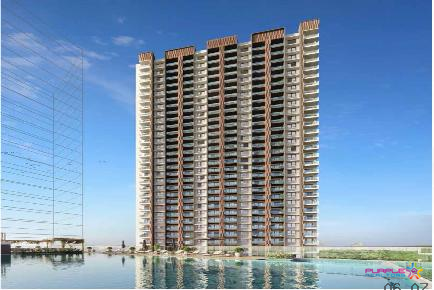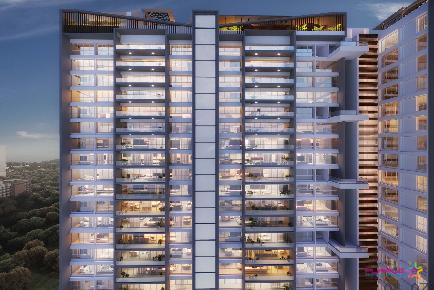
AP81 AP83 Amar Pristine Eighty Three Commercial Koregaon Park Mundhwa Pune - Amar Builders Office Spaces For Lease
Koregaon Park,Pune
The residential real estate sector has been abuzz with news of frauds and project delays. A homebuyer who is the victim of the unfair, negligent or fraudulent practices of the builder has the following remedies available to him.
In a situation where a builder commits a breach of obligations as per the Agreement, homebuyers can approach a Civil Court and file a suit for injunction/damages or refund of amount and interest thereof under the Code of Civil Procedure, 1908.
When the builder commits any unfair trade practice during the execution of his obligations as per the Agreement between the builder and the buyer, the homebuyer can approach civil court against the builder for recovery of the amount already paid by him.
Pros: The buyer can get an immediate order for injunction under O. 39 R. 1 & 2 of Civil Procedure Code wherein home buyer can get immediate interim relief.
Cons: In a Civil Suit, the limitation for adjudication of case is longer as compared to the other remedies. And court fee needs to be paid for the amount claimed in order to initiate proceedings.
District courts have pecuniary jurisdiction in case of matters amounting upto Rs. 2 crore. The original pecuniary jurisdiction of a High Court is for the suits wherein the value of the matter involved is more than 2 crores.
The court fee is charged as per the state Acts and the legal fee varies from the expertise of lawyers and the complexity of the matter.
A homebuyer can within two years from the date of dispute with the builder regarding the property, file a complaint under section 12 of the Consumer Protection Act, 1986 before the Consumer Forum for any deficiency in services on part of builder under the agreement between homebuyer and the builder. A homebuyer is considered a consumer as per the Consumer Protection Act, 1986 provided he buys the house for his own use and not for any commercial purpose.
An example of deficiency in services is when the possession of the property is not delivered within stipulated period. The delay so caused is denial of “service”. Such disputes or claims are termed as deficiency in rendering of service of particular standard, quality or grade.
Pros: Cost effective measure which a home buyer can seek as you don’t have to pay court fees according to the value of property. The fee charged is very nominal in order to encourage the consumer to claim his rights.
Cons: There has been a delay in the timely disposal of cases.
The Consumer Protection Act provides three tier machinery for redressal of consumer grievances. The District Consumer Forum is the initial forum and has jurisdiction to entertain complaints where the value of goods or services and the compensation if any, claimed does not exceed Rs. 20,00,000 (Twenty Lakhs).
Where the value of the goods or services and the compensation if any claimed exceeds Rs. 20,00,000 but does not exceed Rupees One crore, the complaints will be entertained by State Consumer Commission which is established in each state.
If the value of goods and services and the compensation if any claimed exceeds rupees one crore, the National Commission Disputes Redressal Commission will have the jurisdiction to entertain such complaints.
The Consumer Protection Act provides three tier machinery for redressal of consumer grievances. The District Consumer Forum is the initial forum and has jurisdiction to entertain complaints where the value of goods or services and the compensation if any, claimed does not exceed Rs. 20,00,000 (Twenty Lakhs).
Where the value of the goods or services and the compensation if any claimed exceeds Rs. 20,00,000 but does not exceed Rupees One crore, the complaints will be entertained by State Consumer Commission which is established in each state.
If the value of goods and services and the compensation if any claimed exceeds rupees one crore, the National Commission Disputes Redressal Commission will have the jurisdiction to entertain such complaints.
In case where a homebuyer/consumer feels that the builder has used his dominant position leading to disadvantages to the buyer, the buyer can approach Competition Commission of India to file a complaint against a builder for abuse of dominant position as per the Competition Act, 2002. The Competition Commission of India shall investigate anti-competitive practices of the builder and impose stringent penalties on the offenders in case they’re found guilty. The Competition Commission has in fact been very active in this sphere and has imposed hefty fines against the builders taking undue advantage of their dominant position to the disadvantage of the homebuyers.
Pros: A home buyer can approach the Competition Commission of India when he feels builder has used his dominant position and is imposing arbitrary terms and conditions.
Cons: Generally, a penalty is imposed on the Builder for abuse of dominant position. But the said amount is difficult to recover as the Builder goes into appeal against the order of Competition Commission.
This is a cost effective remedy available to the home buyer. The fee for filing a case at Competition Commission of India is approx. Rs. 5000.
A homebuyer/allottee can complain to regulatory authorities like RERA (Real Estate Regulatory Authority) against the non-compliance of statutory obligations imposed upon the builder. An allottee can file with the authority or the adjudicating officer, a complaint under sec. 31 of THE REAL ESTATE (REGULATION AND DEVELOPMENT) ACT, 2016.
In cases where the builders makes false promises to the flat purchasers and do not comply with their statutory obligations, the homebuyer/allottee now has an option to file a complaint under RERA or file criminal case in a Criminal Court against the builder along with the consumer complaint to be filed in consumer forum.
Pros: RERA is the recent statute enacted by the Union of India. By this Act, buyers can expect to get timely ownership as per the promises made by developers. This Act makes it mandatory for the real estate companies to get registered with the regulator. Some advantages are timely delivery of units, furnishing of accurate project details, specifying carpet area. All clearances are mandatory before beginning a project and each project should have a separate bank account.
Cons: The effectiveness of this Act is yet to be ascertained.
It is yet to be ascertained.
The homebuyer/allottee can file a criminal complaint under the provisions of the Indian Penal Code, 1860 for cheating, breach of contract, not responding to the grievance, poor quality of construction, etc. The allottee can issue a statutory notice to the builder. In case the builder does not respond to the notice, parties have a right to approach the Criminal Court. The complainant should bring out irregularities committed by the builders.
Pros: In criminal cases, the process of trial is very fast. In a criminal trial, the person at fault can be ordered to be produced before the court and in case of non-appearance, bailable warrant or non bailable warrant can be issued.
Cons: In Criminal trial, the evidences have to lead by the aggrieved person and witnesses have to be summoned. It can be a cumbersome process.
There is no court fee in such matters. However, the filing and the legal fee will depend entirely on the matter at hand.
If there is an ‘Arbitration Clause” in the Builder Buyer Agreement, Arbitration can be preferred under the Arbitration and Conciliation Act, 1996.
Pros: Unlike court litigation, it’s not necessary to hire a lawyer to pursue a claim in arbitration. It is common for an arbitration to take three to six months from the initial demand to the issuance of an award. Because the rules of evidence do not apply in an arbitration proceeding, it is less time-consuming.
Cons: Arbitrators may be biased and there is lack of a formal evidence process.
It varies from case to case basis.

M Soul Strings by Malpani Group Baner Pashan Pune 3 BHK and 4 BHK Price Location Floor Plan Review
Baner Pashan Link Road, Pune

Godrej Emerald Waters Pimpri Chinchwad Pune 1BHK 2 BHK 3 BHK 4 BHK Price Location Floor Plan Review
Pimpri Chinchwad PCMC, Pune

ABIL Castel Royale Bhosale Nagar Pune 4BHK 5BHK
Bhosale Nagar, Pune

Nandan Festiva Aundh Pune 4 and 5 BHK Floor Plan
Aundh, Pune

Presidential Tower Pimple Saudagar Pune 3 BHK 4 BHK Price Location Floor Plan Review
Pimple Saudager, Pune

AP81 AP83 Amar Pristine Eighty Three Commercial Koregaon Park Mundhwa Pune - Amar Builders Office Spaces For Lease
Koregaon Park,Pune

Cornerstone Maruti Millennium Tower Baner Pune Commercial Project
Baner,Pune

KWT KOHINOOR WORLD TOWER PIMPRI PUNE COMMERCIAL OFFICE SPACE SHOP SHOWRROM
Pimpri Chinchwad PCMC,Pune

45 Baner Street Baner Pune Commercial Project
Baner,Pune

ABIL Boulevard Koregaon Park KP Pune Commercial Project For Lease
Koregaon Park,Pune

SBH Solitaire Business Hub Baner Pune Office Space Showroom Restaurant Spaces For Lease and Sale on High Street Balewadi
Baner,Pune

Kushal Wall Street F C Road Pune Commercial Retail and Office Spaces Price Location Floor Plan
F C Road,Pune

Astra Heights Balewadi Pune Commercial Project For Lease
Balewadi,Pune

Amar Builders AMTP Amar Madhuban Tech Park Baner Pune IT Park Office Spaces For Lease
Baner,Pune

Amar Builder ASTP Amar Sadanand Tech Park Baner Offices Showroom
Baner,Pune